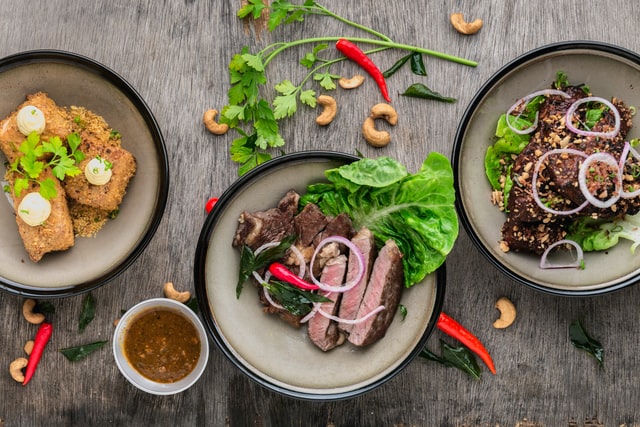Produced by the pineal gland, melatonin is an exceptional hormone known for promoting/inducing sleep. The hormone is produced in larger quantities when the sun sets, and one is exposed to limited light. The more melatonin there is in the blood, the sleepier one will get and possibly enjoy a good night’s sleep. Although it may be produced naturally, there are times when melatonin levels will be too low to cause one to sleep. Improving your diet plan, especially on foods that boost melatonin levels, can help.
While melatonin supplements may help in the short run, experts advise against using them for too long. These supplements may trigger dependency or cause a number of side effects, including dizziness, drowsiness, headaches, and nausea. It would therefore be advisable to use these supplements sparingly but instead increase your intake of foods known to promote melatonin production. Some of these foods are outlined below.
Here is a good guide on what melatonin is.
Why Is Melatonin Important
Our bodies only recover while we sleep. Lack of sleep has shown to be one of the leading causes of a number of health issues, including resistance to insulin, diabetes, irritability, etc. It may also interfere with hunger hormones, forcing you to eat more than you should. Melatonin plays a principal role in promoting and inducing sleep, thus enabling the body to regulate various other processes easily. Other potential benefits of melatonin include:
1. Restores Sleep
Although additional research is needed for this, many believe melatonin can help restore normal sleep patterns. It is also most effective on patients after surgery. Here is some more info on melatonin and sleep. It also impacts on dreaming.
2. Improves Sleep Patterns in Adults
Most adults experience difficulties sleeping, thus only get sleep very late at night or in the morning. Having foods rich in melatonin can help improve their sleep patterns.
3. Better Sleep For Children
Some children may suffer from sleeplessness, mostly as a result of an underlying condition, including ASD (Autism Spectrum Disorder), ADHD (attention-deficit hyperactivity disorder), dermatitis, and asthma. Including foods known to promote melatonin production in their meals can help combat sleeplessness and the ability to fight other conditions too. You might want to seek a doctor’s approval before letting your kid take melatonin supplements.
4. Better Brain Health In Seniors
Most natural body processes slow down as we age. This applies to melatonin levels as well. Many senior adults reportedly have lower levels of melatonin as compared to the younger generation. Low levels of melatonin may increase the risk of certain neurodegenerative conditions including Parkinson’s Disease and Alzheimer’s. Boosting the body’s production of melatonin could help prevent some of these conditions.
5. Improves Eye Health
According to research, melatonin plays a crucial role in promoting eye health. It helps slow down age-related macular degeneration among other issues that affect a senior’s health.
Here is some good info on consumption and dosage.
Best foods for Melatonin
Although there’s no specific RDA (recommended dietary allowance) for melatonin, experts recommend anything between 0.5 and 3mg of melatonin per day. Our melatonin gummies with CBD have 45mg of CBD and 3mg of melatonin. Anything higher than that may trigger undesired results, including drowsiness. Adding these foods to your diet plan should provide enough melatonin to promote sleep. These are:
a. Tart Cherries
Tart cherries have long been used as sleep aids for centuries. Adding these cherries to your meals can thus help promote sleep. It is worth noting that tart cherry juice is considerably high in sugars, a reason you want to be careful if watching weight. Eating cherries instead is one of the best ways to avoid raising your calorie intake.
b. Goji Berries
Goji berries are highly nutritious and are also packed in melatonin. Although native to China, you can still get fresh goji berries in most grocery stores and supermarkets.
c. Eggs
Eggs are a rich and affordable source of proteins. They are also high in melatonin, iron, and other crucial minerals.
d. Milk
Drinking a cup of warm milk in the evening provides an easy way to slide to sleep. This is because milk is rich in essential nutrients and melatonin. It is however specifically recommended for dairy tolerant individuals.
e. Fish
Fish, especially sardines and salmon, is one of the best sources of melatonin. It also supplements your supply of omega-3 fatty acids, hence good for your overall health.
f. Nuts
Almonds and pistachios are good examples of nuts rich in melatonin. They are also packed in healthy fatty acids, minerals, and antioxidants.
Adding just a few of these foods to your diet plan will prove beneficial in the long run. You might want to stay away from foods that might inhibit melatonin production, such as caffeinated drinks.

